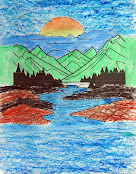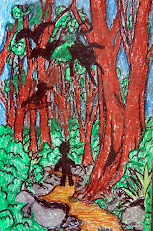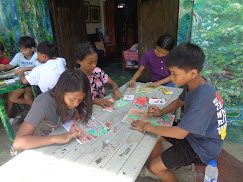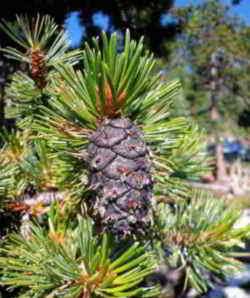Children's Adventure with Nature through Art
Living with Nature Center
San Vicente, Ilocos Sur
"Lolo, can you teach us how to paint and draw?"That was the start of an adventure with nature;So I led the children as a guardian would do,but more on what to learn about life in store.
Dr Abe V Rotor
Instructor

“Every child is an artist; the problem is staying an artist
when you grow up” – Pablo Picasso.
“The urge to draw must be quite deep within us, because children
love to do it” - David Hockney
“If you hear a voice within you say, 'You cannot paint,' then by all means paint,
and that voice will be silenced” – Vincent Van Gogh.
“Art is the colors and textures of your imagination”
- Meghan, Los Cerros Middle School, 1999
"Lolo, can you teach us how to paint and draw?"That was the start of an adventure with nature;So I led the children as a guardian would do,but more on what to learn about life in store.
For once the children set their cellphoneaside one weekend, for the adventure.
With pastel colors, they went to the field,entered the forest, helped the sun rise.
They climbed the mountains and hills,followed the stream flow out to the sea.
They flew with the birds in the blue sky,met white doves come down to rest.
They drew a scary scene and entered;with black birds and strange creatures.
Real and make-believe scenes mixed up,where they have never been before.
Few creatures in the wild they encounteredon the field and forest - what are they really?
They missed the parrots, the eagle beggingfor rescue, other endangered animals.Aren't trees home of wildlife and ferns,orchids, vines and other epiphytes?
Seasons are always open to meet nature,what did they choose other than summer?
Have they found Nature's beauty and joy?A gust of wind came passing, whispered:
"Living with Nature is a lifetime experienceevery day, a most rewarding adventure."
Open the Book of Creation, I told the childrenlive BY, FOR, WITH Nature as you grow up.
"No, we don't need more sleep. It's our souls that are tired, not our bodies. We need nature. We need magic. We need adventure. We need freedom. We need truth. We need stillness. We don't need more sleep, we need to wake up and live."
- Brooke Hampton
Art enthusiasts from the neighborhood attend drawing
session with the author as guide and instructor at the
Living with Nature Center, San Vicente, Ilocos Sur.
“We must teach our children to smell the earth, to taste the rain, to touch the wind,
to see things grow, to hear the sun rise and night fall – to care.” – John Cleal.
Author poses with his young students on art at the Living with Nature Center.
“Let me ask you something, what is not art?”- Author Unknown ~



























































